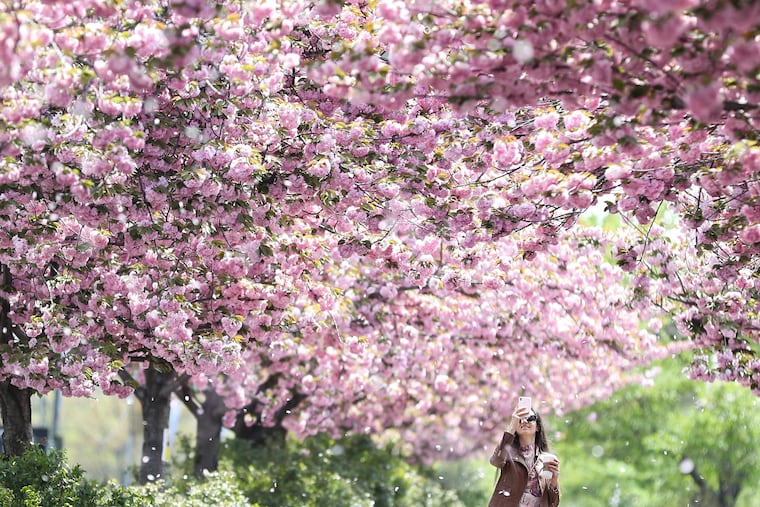Grass pollen joining the trees to torment Philly allergy sufferers
Things just got worse for those allergic to both tree and grass pollen. Levels of both could remain high through the month.

In a period when a harvest of tree pollen has filled the air in the Philadelphia region, the congestion and itchy-eye season evidently has just gained a second wind.
Grass pollen counts Thursday morning were “very high,” according to the Asthma Center in Center City.
Across the river in Mount Laurel, they had jumped 16-fold between Tuesday and Wednesday, said Donald Dvorin, specialist with the Asthma and Allergy Doctors practice. “The grass just erupted,” he said.
Tree pollen in the last two weeks has varied between “high” and “very high,” and that likely has to do with the fact that on four days temperatures have reached 80 or better. The grasses have awakened the last few days.
Rains Wednesday morning likely paused the frenzies, but the winds that followed have reloaded the airways with the tiny male gametes.
The tree and grass pollens typically form an alliance of torment this time of year as their reproductive efforts overlap. Their insidious partnership tends to last until the end of May, when the trees give it a rest, based on available local pollen data, but the grasses persist well into June.
A hard count isn’t available, but pollen allergies likely affect hundreds of thousands of people in the region annually, and some of them are sensitive to both trees and grasses as their immune systems interpret the pollen grains as invaders and overreact.
You might have noticed that the average pollen grain isn’t big on GPS: A whole lot of what the trees and grasses emit in efforts to ensure the future of the species lands on cars, picnic tables, patio chairs, and human beings.
The fallout triggers annoying spells of sneezing, nose-running, congestion, and a sensation not unlike poison ivy of the eyes.
» READ MORE: Pollen-allergy vs. COVID-19 symptoms, here are the differences
(Some sufferers also experience shortness of breath and dry cough, similar to symptoms of COVID-19. However, itchiness isn’t a coronavirus symptom, and fever would be unrelated to allergies, doctors say.)
Aside from prescription drugs and over-the-counter remedies, allergists advise that one effective strategy is to try to stay out of harm’s way when the counts are high or conditions look favorable to pollen flight — dry, with brisk winds, and low humidity.
When outside, it wouldn’t hurt to keep masks on, shower and change clothes when back inside, and keep the windows closed.
One thing sufferers can do to combat grass pollen is to confront the enemy by mowing regularly, says the Asthma Center.
While this would be “beneficial in the long-term,” the combatants would be well-advised to arm themselves with pockets full of tissues.